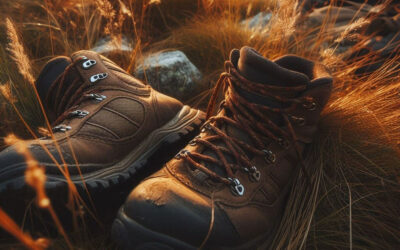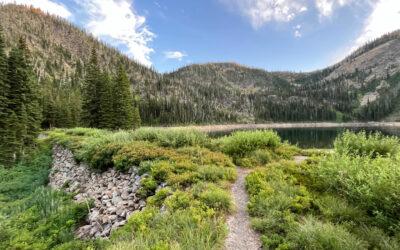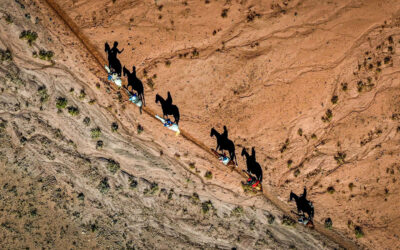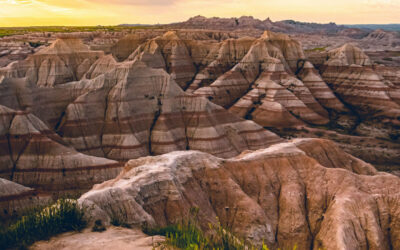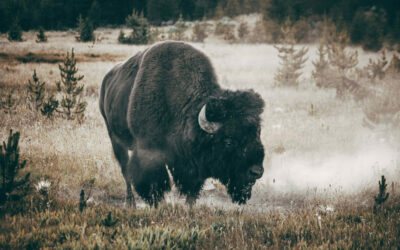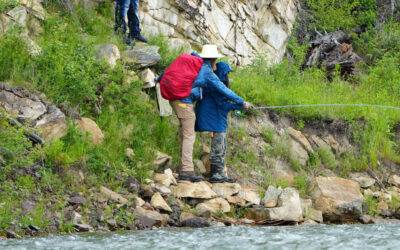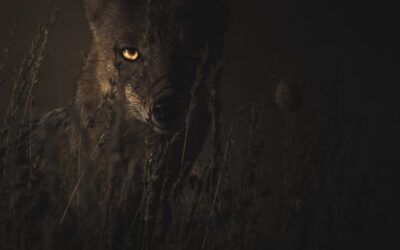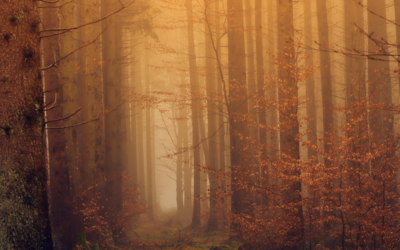
The International Journal of Wilderness (IJW) is the tool of choice for wilderness managers and advocates, produced through a unique collaboration between the WILD Foundation and its many partners and sponsors.
Featured Articles
Missing the Forest for the Algorithm
What is the value of wilderness? Well, what you have just completed reading is the “value of wilderness” as described by ChatGPT 3.5.
Answering the Dam Question: Visitor Perspectives on Removing and Maintaining Dams in Wilderness
Our aim through this present research is to examine public agreement or disagreement with removing or maintaining dams in a federally designated wilderness.
The Power of Invitation: Wilderness Managers as Collaborative Hosts
The purpose of this article is to examine how wilderness managers can address diverse needs and perspectives by building culture through education and outreach.
Get Involved
Support the IJW
When you subscribe to the International Journal of Wilderness, you gain the tool of choice for wilderness land managers and advocates. Moreover, you invest in the only international forum for wilderness sharing research and insights that improve our understanding of and relationship with the wild world.
Write for us
We invite contributions pertinent to wilderness worldwide, including issues about stewardship, planning, management, education, research, international perspectives, and inspirational articles. The IJW solicits original manuscripts only and (with rare but important professional exception) we do not accept those previously published or simultaneously submitted elsewhere.
Archived Issues
To expand your wilderness knowledge and target your action to protect wilderness, take advantage of the most extensive wilderness publications archive in the world, with free access to IJW issues that started in 1995!
October 2024
In this issue of IJW, Pablo Garrido suggests the necessary prerequisites for rewilding. Jesse Engebretson and Courtney Larson discuss the benefits and tradeoffs of eDNA in wilderness management. Will Rice introduces the Western Wildlands digital archive. And Alexandra Locquet and Stéphane Héritier continue our “Wilderness Babel” series with the impossibility of translating “wilderness” into French and describing when ecological meaning fails to express cultural complexity.
April 2024
In this issue of IJW, Paul Keeling shares thoughts on the trouble with virtual wilderness. Will Rice and Chris Armatas examine visitor perspectives on dams in wilderness. Tangy Ekasi-Otu discusses the power of managers as collaborative hosts. Caleb Meyer and others investigate opportunities for solitude or unconfined recreation on the Colorado Plateau. And Martin Hawes and Grant Dixon continue our “Wilderness Babel” series with perceptions of wilderness in Australia.
December 2023
In this issue, Amanda Grace Santos and other emerging land management professionals discuss what diversity, equity, inclusion, and access in wilderness means to them, Brett Quin and Erin Drake share their work advancing wilderness accessibility for people with disabilities, and Kimm Fox-Middleton shares a creative solution towards getting early career land management professionals excited about sharing with and learning from a retiring wilderness workforce. Adrienne Lindholm shares the work of the National Park Service to reimagine a more inclusive wilderness concept using a case study of Glacier Bay National Park, Alaska, and Lauren Redmore and co-authors led an effort to understand what wilderness management professionals would like to see from an interagency toolbox for diversity, equity, and inclusion.
June 2023
In this issue of IJW, we remember Dr. Kathy McKinnon, former chair of the IUCN World Commission on Protected Areas. Lisa Ronald and her coauthors investigate how we might make wilderness more welcoming by assessing barriers to inclusion. Jason Taylor and the Aldo Leopold Wilderness Research Institute staff present their 10-year wilderness science strategic plan. Howard Smith and others discuss shifting baseline syndrome among whitewater outfitters and guides. And Suyash Keshari and Bhavna Menon tell the story of India’s Tigers.
December 2022
In this issue of IJW, we remember Dave Foreman as a father tree for wilderness. Carol Lee and Tanya Dreizin investigate peer-driven social pressures for behavior in rock climbers. Keely Fisher examines virtual reality and the impact of wilderness conceptualizations. Gracie Dunlap describes living along¬side the Yawanawá. And John Shultis uses creative expression and the arts to demonstrate the impact of wild places.
August 2022
In this issue of IJW, Rebecca Rasch finds wildland advocates in unexpected places. Elena Thomas, Williams Rice, Jenn Thomsen, Jaclyn Rushing and Chris Armatas investigate constraints to wilderness recreation. Tina Tin documents wilderness area visitation during the COVID pandemic. And Marcus Hall, Wilko Graf von Hardenberg, Tina Tin, and Robert Dvorak reintroduce the Wilderness Babel project.In this issue of IJW, Roger Kaye examines what nature looks like in the Anthropocene. Janet McMahon describes biodiversity as the language of wilderness. Peter Pettengill, Roisin Creedon-Carey, and Sage Lalor discuss wilderness solitude in an era of isolation. And Elizabeth Perry explores the development of nature-based tourism in Oman.

